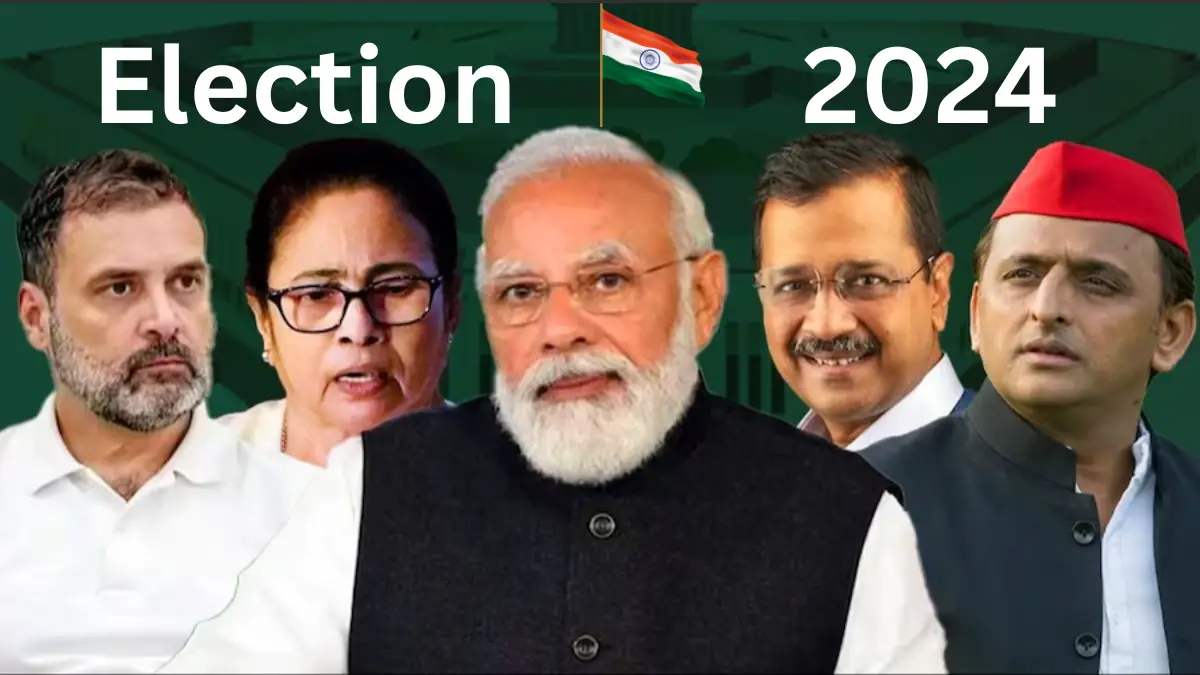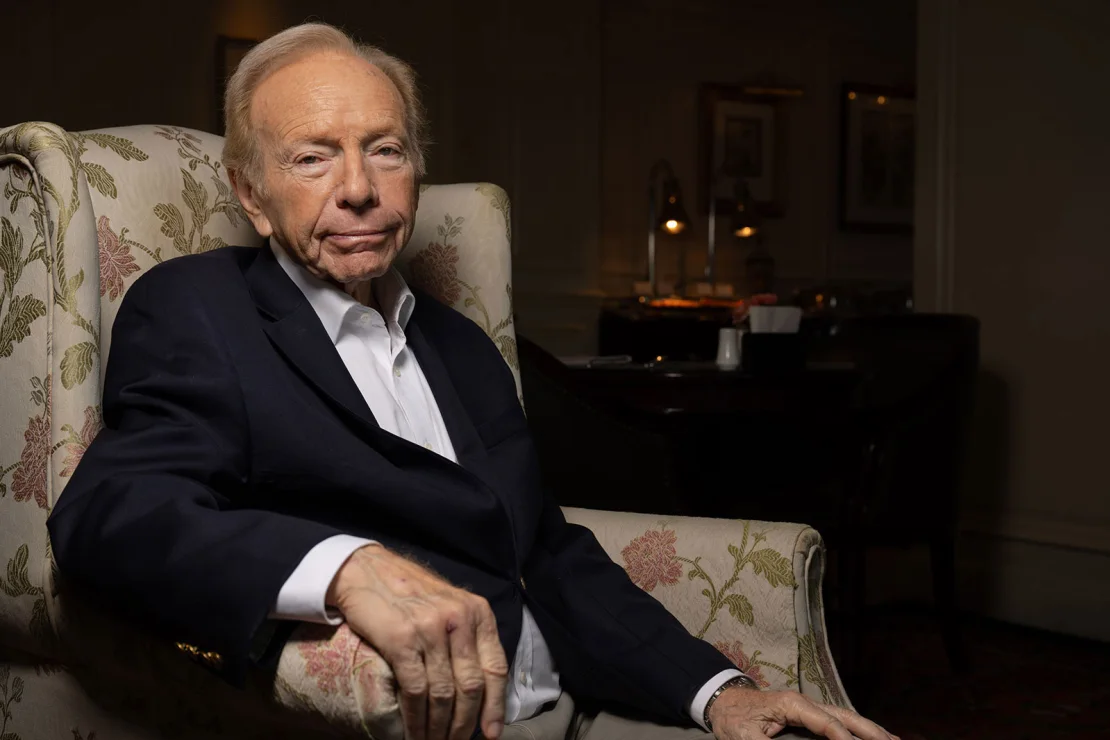In the midst of India’s massive election process, which spans seven different voting days from April to June, the opposition parties seem to be losing strength against Prime Minister Narendra Modi’s determined bid for a third consecutive term. Despite their efforts to present a united front, the opposition appears fragmented and less cohesive. This unprecedented display of unity is a strategic attempt to galvanize voters, urging them to “save democracy” from what they perceive as an existential threat posed by continued Bharatiya Janata Party (BJP) rule. The opposition fears that another term for Modi could further erode democratic norms and lead to increased authoritarianism.
Echoes of History: A Stand at Ramlila Maidan
This rally echoed a significant moment from over four decades ago when opposition leaders stood on the same ground, rallying against then-Prime Minister Indira Gandhi. Her imposition of a state of emergency had curtailed civil liberties and imprisoned political opponents, bringing India to the brink of autocracy. The ensuing election in 1977 ended her rule and reaffirmed India’s democratic principles. Today, many believe the country stands at a similar crossroads.
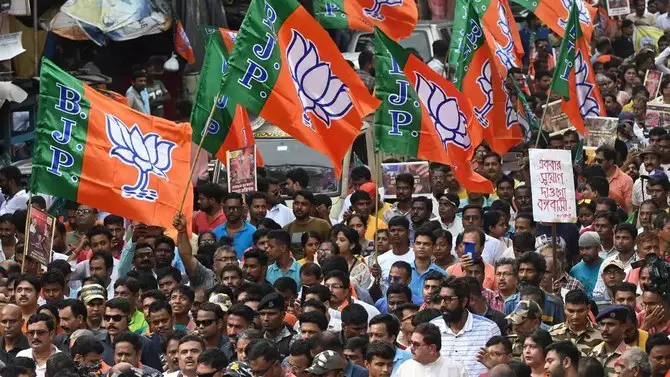
A Threatened Democracy?
Prime Minister Modi’s popularity remains robust, with a 2023 Pew Research survey indicating that about 80% of Indian adults hold a favorable view of him. His potent blend of economic initiatives and Hindu nationalism has garnered widespread support. Yet, opposition leaders accuse his government of eroding democratic norms by weaponizing state agencies to suppress dissent and manipulate electoral outcomes.
Rahul Gandhi, the prominent face of the Indian National Congress and scion of a storied political dynasty, warned the crowd in Delhi of the dire consequences if the BJP secures a supermajority. “If the BJP wins these fixed elections and changes the constitution, the country will be on fire,” he declared. His sentiments reflect a broader fear that Modi’s administration is steering India away from its secular foundations towards a more religiously polarized future.
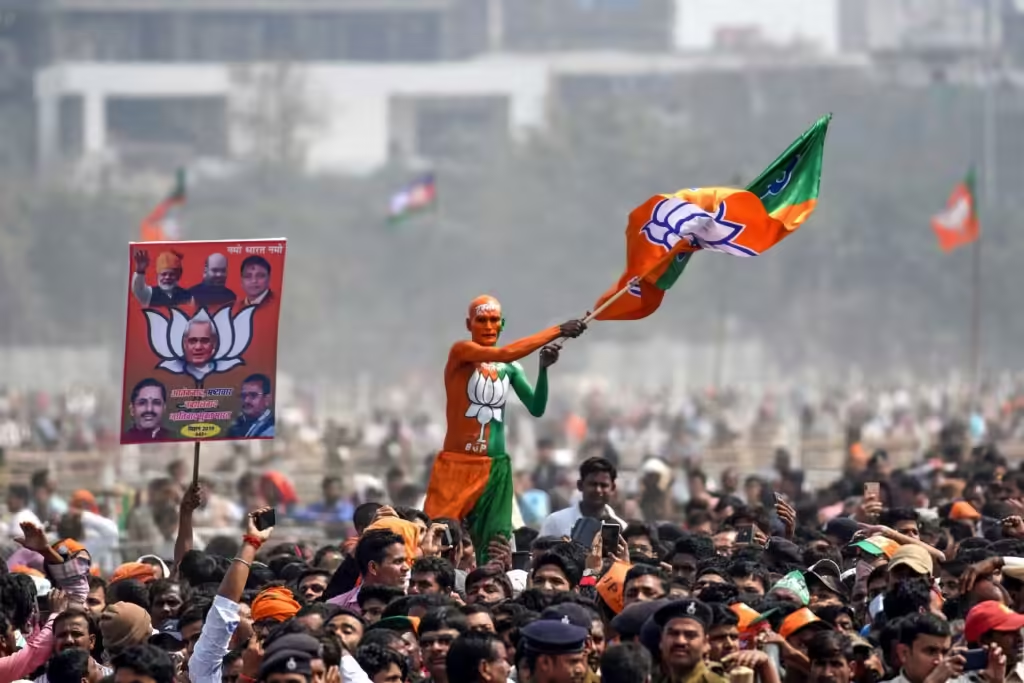
A Divided Opposition
Despite forming the Indian National Developmental Inclusive Alliance (INDIA), the opposition has struggled to present a united front. Ideological differences, defections to the BJP, and the lack of a clear prime ministerial candidate have plagued their campaign. Political commentator Arati Jerath emphasizes the necessity of a vibrant opposition for a healthy democracy, warning that the survival of democratic principles hinges on the opposition’s ability to challenge the government effectively.
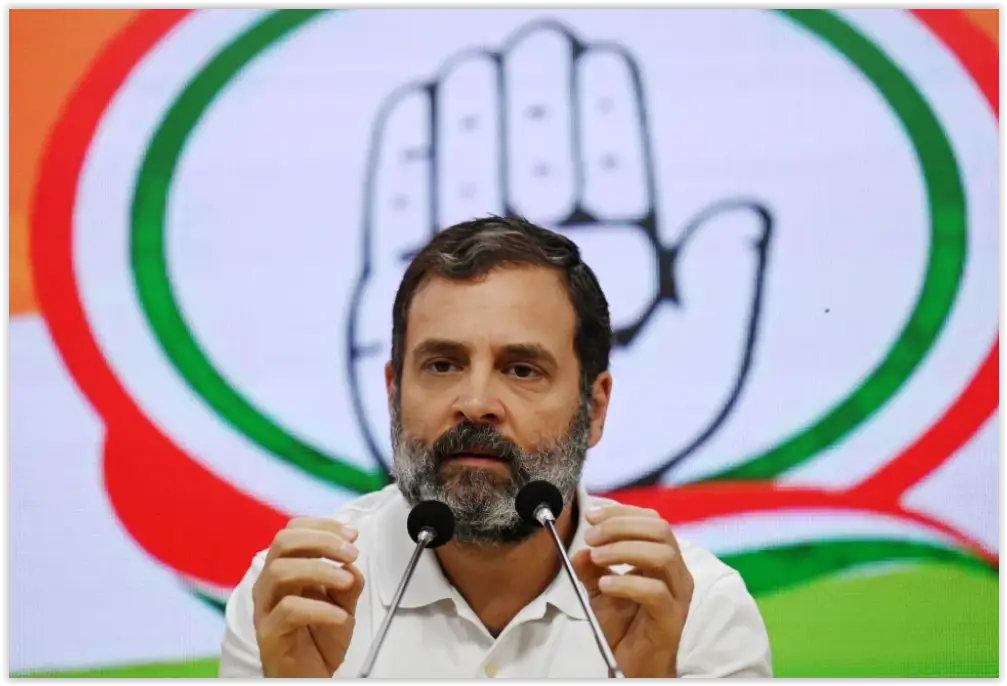
Modi’s Ascent: From Gujarat to Global Stage
Narendra Modi’s political journey began in Gujarat, where he rose through the ranks of the Rashtriya Swayamsevak Sangh (RSS) and the BJP, ultimately becoming the state’s chief minister. His tenure was marked by significant economic development but also by controversy, particularly the 2002 Gujarat riots. As Prime Minister, Modi has transformed India’s infrastructure and economy, earning recognition on the global stage. However, his administration’s actions have sparked concerns about the future of India’s democratic integrity.
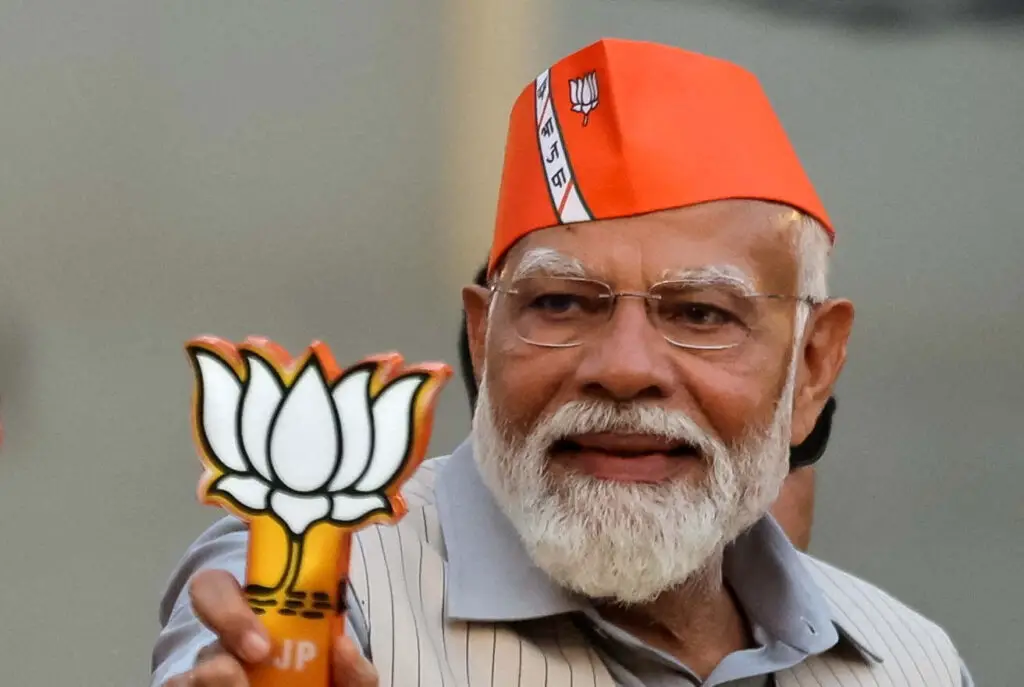
The Battle Ahead
As India heads towards the crucial Lok Sabha elections, the opposition’s challenge is formidable. They must mobilize support against a highly popular incumbent and address critical issues like youth unemployment, healthcare, and education. The BJP’s narrative of economic growth and national pride continues to resonate with many voters, making the opposition’s task even more daunting.
Modi’s BJP aims for a supermajority in parliament, which could enable constitutional amendments. Although the party denies any plans to alter the constitution, critics remain wary. The opposition accuses the BJP of using state machinery to intimidate and coerce its members, with prominent leaders like Arvind Kejriwal facing legal battles that they claim are politically motivated.
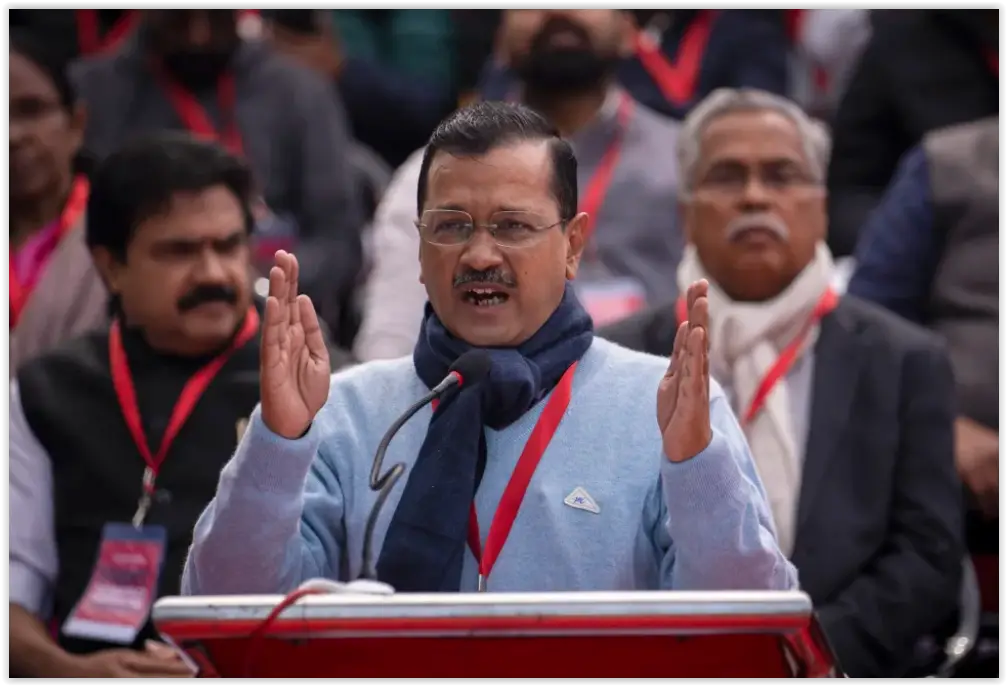
The Stakes
In this high-stakes election, the outcome will not only decide the next government but also the future direction of India’s democracy. Will the opposition’s call to “save democracy” resonate with voters, or will Modi’s vision of a prosperous, Hindu-nationalist India prevail? As the world watches, the fate of the world’s largest democracy hangs in the balance.

